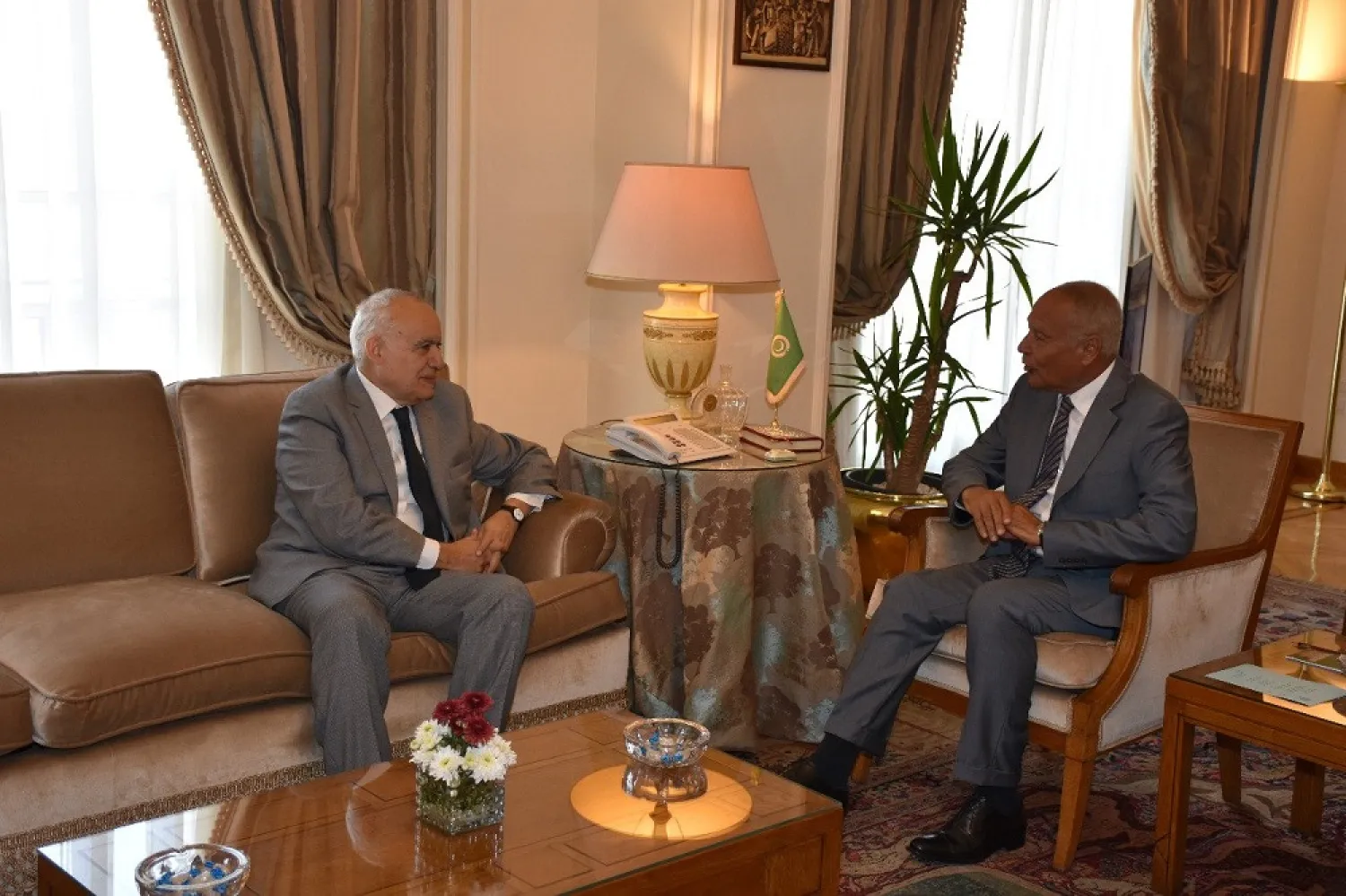United Nations envoy to Libya Ghassan Salame called on Monday the Arab League to play a role in resolving the crisis in the north African country.
Arab League chief Ahmed Abul Gheit received Salame in Cairo on Monday. Discussions focused on political and security developments in Libya.
Salame stressed the importance of Arab League's role in finding a “lasting political solution” in the country. There can by no military solution to the conflict, said the UN.
Abul Gheit, for his part, welcomed the envoy’s efforts in reviving the political process.
He expressed the organization’s firm rejection of all forms of foreign meddling in Libyan internal affairs, reiterating its commitment to encouraging Libyan parties to cease military operations and reach a comprehensive settlement.
Salame later held talks with Egyptian Foreign Minister Sameh Shoukri.
On the ground, the Libyan National Army, commanded by Khalifa Haftar, accused militias loyal to the Government of National Accord of targeting civilian infrastructure in the capital, Tripoli, including Mitiga airport on Sunday.
It denied that it was behind the shelling, slamming “the daily lies and fabrications by the Muslim Brotherhood and its front, the illegal GNA, against the LNA.”
GNA chief, Fayez al-Sarraj, must acknowledge that he cannot control the militias that are propping up his government and that one of these groups was behind the Mitiga shelling, it added.
The UN mission said four projectiles hit the civilian parts of the airport including a runway, resulting in damage to a plane carrying dozens of pilgrims and wounding two crew members.
Four Libyan airlines moved their operations to Misrata airport, some 200 km (125 miles) east of Tripoli, until further notice, they said on their websites.
Mitiga, just east of central Tripoli, has repeatedly come under attack in the past several months, forcing it to halt flights for several hours.









